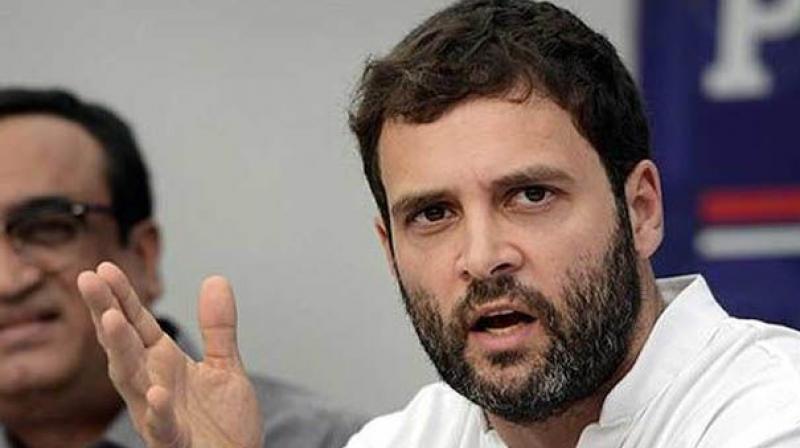Lack of jobs led to Modi's rise, says Rahul Gandhi

Princeton (US): The people around the world are electing leaders like Narendra Modi and Donald Trump due to frustration over growing unemployment, Congress vice-president Rahul Gandhi said on Wednesday while acknowledging that his party lost the 2014 polls as it failed to create enough jobs.
Mr Gandhi, 47, who is in the US on a two-week-long tour, during his interaction with students at the prestigious Princeton University said employment was an all-encompassing means to empower, enfranchise and involve Indians in the nation building process.
“I think, the central reason why Mr Modi rose and to an extent why Mr Trump came, is the question of jobs in India and in the United States. There’s a large part of our populations that simply does not have jobs and cannot see a future. And, so they are feeling pain. And they have supported these type of leaders,” Mr Gandhi said.
He said another problem is that nobody was recognising that unemployment was a problem.
‘Unemployment will be problem for PM too’
“I do not know Trump. I don’t go there. But, certainly our Prime Minister is not doing enough (in creating jobs),” said the Congress leader.
Mr Gandhi has repeatedly raised the issue of joblessness during his meetings with experts, business leaders and Congressmen in the US. “Currently, we are not producing enough jobs. 30,000 new youngsters are joining the job market every single day and yet the government is only creating 500 jobs a day. And this doesn’t include the massive pool of already unemployed youngsters," Mr Gandhi had said in his earlier address at the University of California in Berkeley.
At Princeton, Mr Gandhi said India needed to transform itself to compete with China and for that the people in the country required jobs. “Those same people who got angry with us because we couldn’t deliver on those 30,000 jobs (a day) are going to get angry with Mr Modi. The central question is resolving that problem. My main issue with Mr Modi is that he diverts that issue and points the finger somewhere else instead of saying listen we have a problem,” he said.
“There is anger building up in India now. We can sense it. So to me the challenge is how to solve that job problem in a democratic environment. That’s the challenge,” he said.

